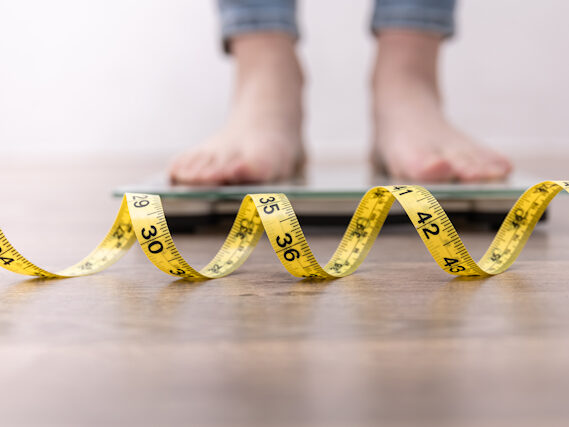Writing this blog post at the beginning of March has made me mindful of all those who started their new diets back in January in a hope to be trimmer and fitter. After all the Christmas overindulgence, it seemed an easy decision to eat less to be fitter and healthier. For some, health pointers may have made the need to look after themselves a higher priority. While the image in the mirror may be not the person we want to see.
Abstaining in January was encouraging and early wins on the scales were affirmations that we’re heading in the right direction. The ink on the gym contract hadn’t quite dried, but those monthly payments are an investment in creating a “new me”. Besides, on the outside the image looked better with the latest flattering sportswear.
January rolled into February, and the sight of the first snowdrop reminded us that spring was just around the corner, and the bed socks could be mothballed until next winter. Snacks and carb laden foods were becoming more irresistible, but still we resisted temptation. Work and family life started becoming busier and “take aways” are so convenient. It’s only one chocolate, one bag of crisps, one biscuit…
This is when all those January good intentions start to bite, this is when we need to strengthen our resolve. Or put it another way, if you put on 1Kg of weight in a year, you would be forgiven for thinking, “I can live with that”. But consider that from the age of 25 to 45, 20Kg or over 3 Stones! Before we know it, we’re in dangerous territory pushing in to obesity. Which in turn puts us at risk of heart disease, diabetes, cancer, and many other conditions.
So, that’s great! “I’m convinced”, you say. We need to control our weight, but is that really it? We’re bombarded masses of nutritional and health “facts”, and it all seems overwhelming at times. You may even feel that if you lose enough, then you can go back to the way you were “enjoying” your food. The world is full of serial dieters who are steadily putting on the 1kg a year. So, weight increase can be slow and progressive.
So that’s the issue?
To be fit and healthy but not becoming obese is to live in an eternity of boringness. No!! Remember the feeling, the enthusiasm and optimism of starting this healthy journey back January? There is a payback for being healthier with improved wellbeing. Research has shown that depression and anxiety is often associated with overeating. So, while in January the thought was about getting trimmer and fitter, it has brought about more health benefits.
It’s not just about food and exercise?
Change brings about a different mindset. That desire to make the initial change impacts on so many things. It’s not just about looking better in the mirror and feeling less fatigued, but it improves our mental and emotional health as well. The combination of improved physical, mental emotional health lifts our whole wellbeing. In the same way as that extra 1Kg a year is a pathway to obesity, failing to look after our wellbeing is a pathway to poor mental and emotional health.
 So, what is the mental and emotional 1Kg?
So, what is the mental and emotional 1Kg?
If left unchecked, our mental and emotional wellbeing will be gradually eroded away. I don’t want to discuss the causes of declining mental health, but rather look at that things we can do to maintain our mental wellbeing. By recognising and putting into practise the behaviours of good mental and emotional health, we can improve and maintain our overall sense of wellbeing.
- Nutrition. Our modern diet impacts on both our mental and physical health. The high carbohydrate ultra-processed diet has been linked with the increase in depression and anxiety. It has also been linked to the increase of insulin resistance that causes type 2 diabetes, cardiovascular disease, and cancer. So, eating a varied diet full of nutrient rich wholefoods and make a big difference to our sense of wellbeing.
- Connection. Face to face connection with other people daily is essential. It is part of being human to be part of families, communities, peer groups, social groups, and so on. Face to face is important because social media is not a replacement for connecting with others. Although, a quick “hi, let’s meet for coffee” with someone is a great way to break the ice.
- Activity. Signing up to a gym membership is only one activity. While sport and exercise are what most people think of as the definition of activity, there is almost an infinite number of active pursuits. For example, walking, gardening, dancing, and many other activities. Many activities are also social, so they also meet the need of connection.
- Learning. We’re never too old to learn and there are plenty of opportunities to learn new skills or acquire knowledge. It was only recently that 95-year-old David Marjot graduated with an MA. Okay, that might be a bit adventurous for most. But most areas in the UK run an adult education programme, running courses in anything from pottery to modern languages. As I write this at 64 years old, and I have done some sort of training/courses every year since I was 30 and I don’t feel like slowing down yet.
- Appreciation. This can also take many forms; some describe it as living in the moment. But it could also be enjoying art, music, or nature. It is currently spring, and I love to see the daffodils and tulips. Equally, while walking in the country, you can appreciate the scenery or wildlife. We can build an awareness of what’s around us and take a moment to be grateful for what is around us.
- Giving. By giving back or helping others can lift our sense of purpose. By volunteering or taking part in a community project, you not only give, but also connect with others and be active.
So, it’s March, now what?
Great! We have survived the first two months of the year and stayed with the plan. Now is the time to delve a little bit deeper and continue maintain our wellbeing by developing a culture of making each wellbeing element sustainable. There is no one size fits all, and everyone has different personalities, interests, and tastes. Also, as we mature our interests change and develop.
So, the hard part is finding what motivates us to make each element sustainable, so we can continue to maintain a healthy weight and lifestyle. If something doesn’t work, try something else and break everything down into small steps. You can’t become a “black belt in origami” overnight, but small steps will take you there.
Well done! You deserve it, you’ve done the hardest part. Now is the time to make it stick and carry on with the progress and make it sustainable.
If you want to know more about Pure Body Fix® and how it can help you make positive changes to your life, email us at info@purebodyfix.com.






